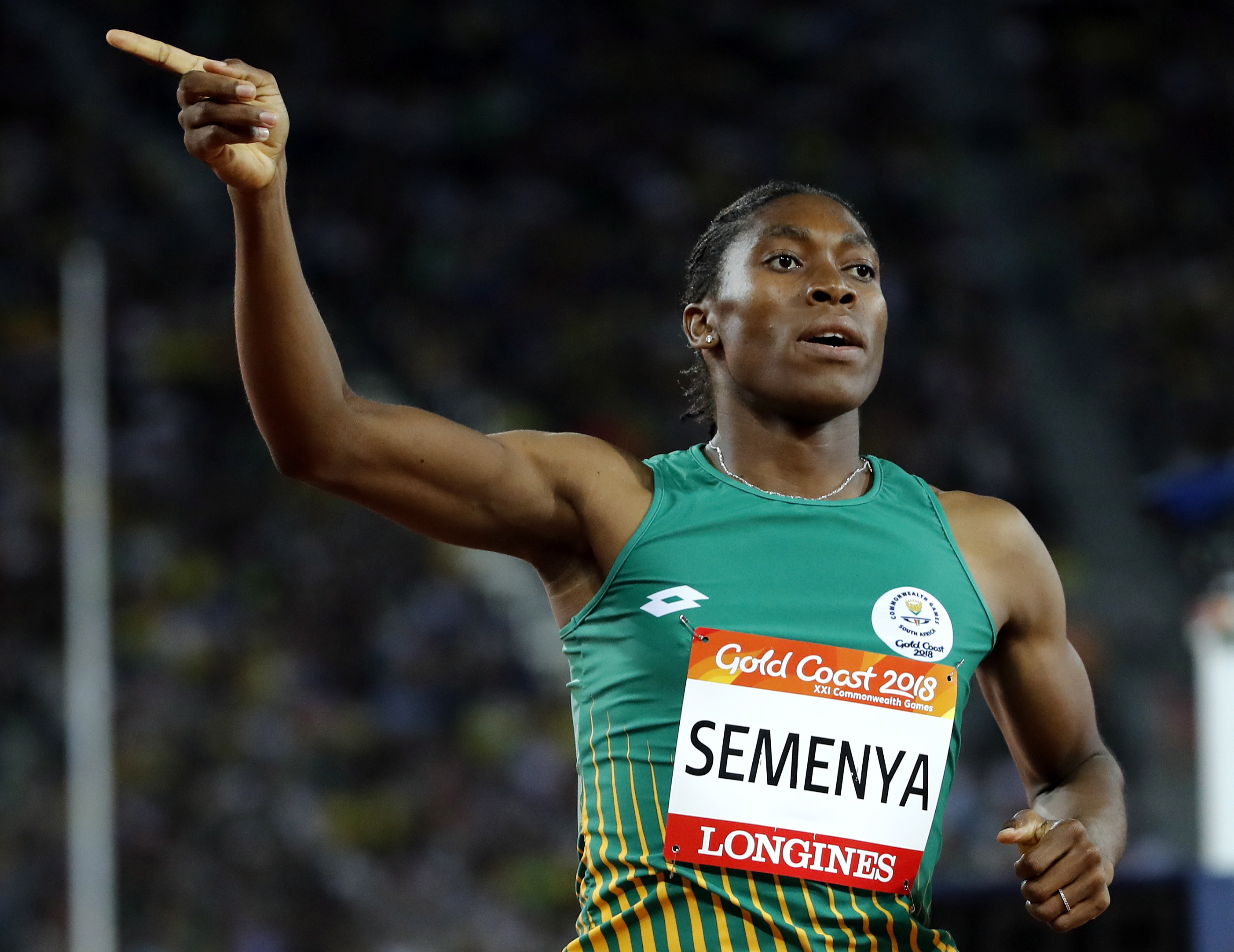Caster Semenya loses landmark testosterone rule case

On Wednesday, double Olympic champion Caster Semenya lost her appeal against the introduction of new rules regulating the testosterone levels for athletes with a difference in sex development (DSD). The 28-year-old South African, who is hyperandrogenous — meaning she has elevated levels of testosterone — will now need to take medication to reduce her testosterone if she wants to compete internationally at events between 400 meters and one mile. Semenya is the dominant force in women’s middle distance running.Follow @cnnsport
In its ruling the Court of Arbitration for Sport (CAS) announced that its three-person panel had rejected Semenya’s challenge against athletics’ governing body — the International Association of Athletics Federations (IAAF) — “by majority” but did add that it had “serious concerns as to the future practical application” of the new rules. Under the IAAF’s policy, which will now come into effect on May 8, all DSD athletes, who are usually born with testes, would have to reduce their blood testosterone levels to below five nmol/L for a continuous period of at least six months, and maintain those levels continuously for the rest of their athletic career, if they want to compete internationally at middle-distance events.Hyperandrogenism is a medical condition estimated to occur in 5% to 10% of women.An excess of testosterone has been found to increase muscle mass within females and cause increased strength, stamina and physical energy.Some critics argue that skews what should be a level playing field in women’s athletics.The IAAF believes DSD athletes have a competitive advantage — findings that were disputed by Semenya and her legal team.A CAS statement said the panel was unable to establish that the DSD regulations were “invalid.” Although the Swiss organization also found the policy was discriminatory to athletes with DSD, CAS said “such discrimination is a necessary, reasonable and proportionate means of achieving the IAAF’s aim of preserving the integrity of female athletics in the Restricted Events.”It was a conclusion Semenya — who has 30 days to appeal the CAS ruling to the Swiss Federal Tribunal — described as disappointing. “I know that the IAAF’s regulations have always targeted me specifically. For a decade the IAAF has tried to slow me down, but this has actually made me stronger,” Semenya, the most dominant middle-distance runner of her generation, said in a statement released by her representatives. “The decision of the CAS will not hold me back. I will once again rise above and continue to inspire young women and athletes in South Africa and around the world.” Semenya’s representatives said the Olympian was pleased that CAS had found the IAAF rules to be discriminatory against DSD athletes, but was disappointed that two of the arbitrators had deemed such discrimination to be necessary. “Ms Semenya is reviewing the decision with her legal team and considering whether to file an appeal,” the statement continued. Whether Wednesday’s decision draws a line in the sand for track and field’s governing body over such a complex issue remains to be seen.Within the statement, CAS expressed some concerns over the application of the IAAF regulations, which included: the unintentional non-compliance of the strict testosterone levels, the absence of concrete evidence on the advantage higher testosterone gives athletes at distances over 1500 meters and the “practical impossibility” of compliance. Referring to potential health issues, CAS said: “The side effects of hormonal treatment, experienced by individual athletes could, with further evidence, demonstrate the practical impossibility of compliance which could, in turn, lead to a different conclusion as to the proportionality of the DSD Regulations.”READ: Navratilova criticized for comments on trans women in sportREAD: Semenya needs to be treated fairly – MosesREAD: IAAF accused of ‘blatant racism’ The South African Ministry of Sport has told CNN it plans to appeal the CAS ruling to prevent the implementation of the new rules.”We are naturally very disappointed with the decision. This is not only against human rights but also a blow to all South Africans. We are committed to lobby other athletics bodies to stand behind us. This wasn’t only Caster Semenya’s case but also Athletics South Africa and we plan to study the report in detail. We plan to appeal this decision,” a spokesperson said.On Twitter, the South African government quoted sports minister Tokozile Xasa as saying that the IAAF’s rules “trample on the human rights and dignity of Caster Semenya and other women athletes.” In a statement, the IAAF said it was “grateful” and “pleased that the regulations were found to be a necessary, reasonable and proportionate means of achieving the IAAF’s legitimate aim of preserving the integrity of female athletics.”The rules were due to come into effect in November last year — with IAAF President Sebastian Coe saying at the time in a statement that the federation had a “responsibility to ensure a level playing field” — before being delayed by Semenya’s CAS challenge.In a move which could have a wider impact, a statement to CNN from the International Olympic Committee (IOC) said it was working with a group of experts on creating guidelines to help international federations “shape sport specific policies and regulations in relation to fairness, safety and inclusivity and non-discrimination on the basis of gender identity and sex characteristics.”Seismic impactWhile the current number of hyperandrogenic and transgender athletes competing at international level is thought to be relatively low, Wednesday’s ruling is likely to have a seismic impact on the future of sport.Tennis great Martina Navratilova said the CAS verdict was “dreadfully unfair” and “wrong in principle.”The IAAF has said it will make an exception for athletes wishing to compete under the new regulations at the World Championships in Doha this September.Though the event is less than six months away, Semenya and other similar athletes will be allowed to begin taking medication before the end of this week to be eligible.A statement from the IAAF said that no athlete “will be forced to undergo any assessment” and that any treatment was up to the individual athlete.Visit CNN.com/sport for more news and featuresA career in the limelightSemenya burst onto the scene as an 18-year-old at the 2009 world championships in Berlin where she won a first major gold, but she was unable to compete for much of 2009 and 2010 after undergoing gender verification tests, the results of which were never officially released.The South African was eventually cleared to compete again, but a new rule which enforced testosterone limits was introduced in 2011. Yet that directive was subsequently overturned by CAS in 2015.Semenya went on to win Olympic gold in Rio de Janeiro in 2016 — adding to a gold medal belatedly picked up in London four years earlier after her silver was upgraded because of a doping violation by the winner, Mariya Savinova of Russia.British athlete Lynsey Sharp was reduced to tears after watching Semenya storm away to victory in Rio. Sharp stated at the time that it was “difficult” for others like her to compete.On Friday, Semenya won gold in the 5,000 meters at the South African Athletics Championships. This represents a new event for the Olympic champion and one that would not be covered by the new IAAF rules.







